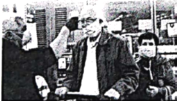题目内容
—Thank you for giving me so much practical advice.
—________. Keep trying and you are sure to be successful.
A.I can't agree more B.I didn't mean it C.Don't mention it D.Don't speak too much
练习册系列答案
 天天向上一本好卷系列答案
天天向上一本好卷系列答案 小学生10分钟应用题系列答案
小学生10分钟应用题系列答案
相关题目



